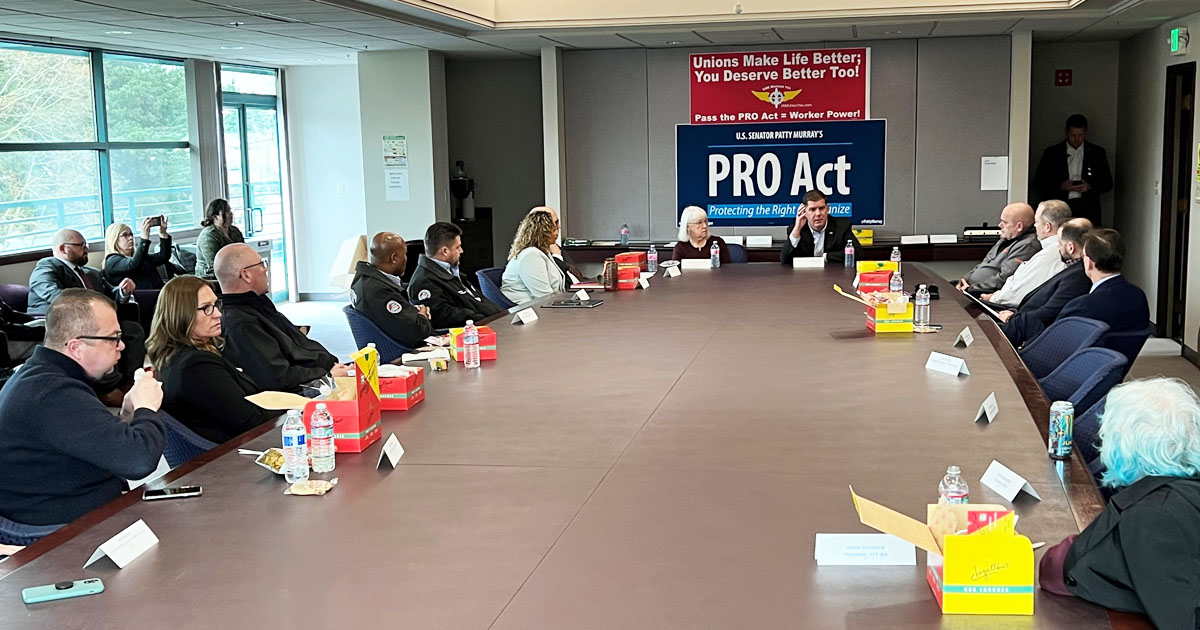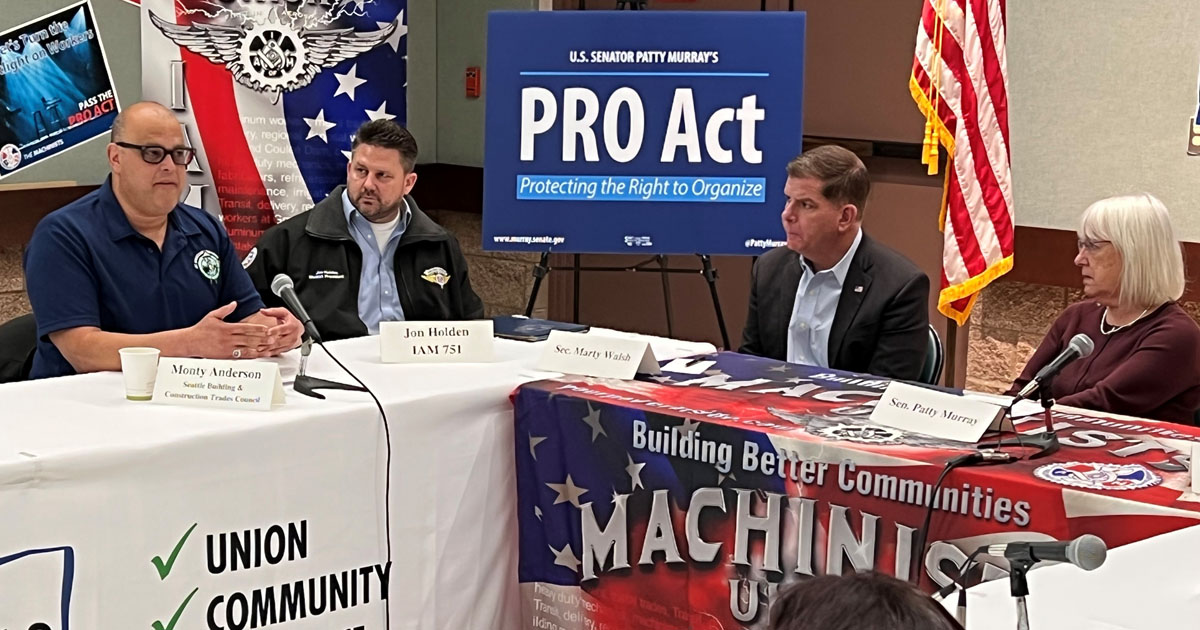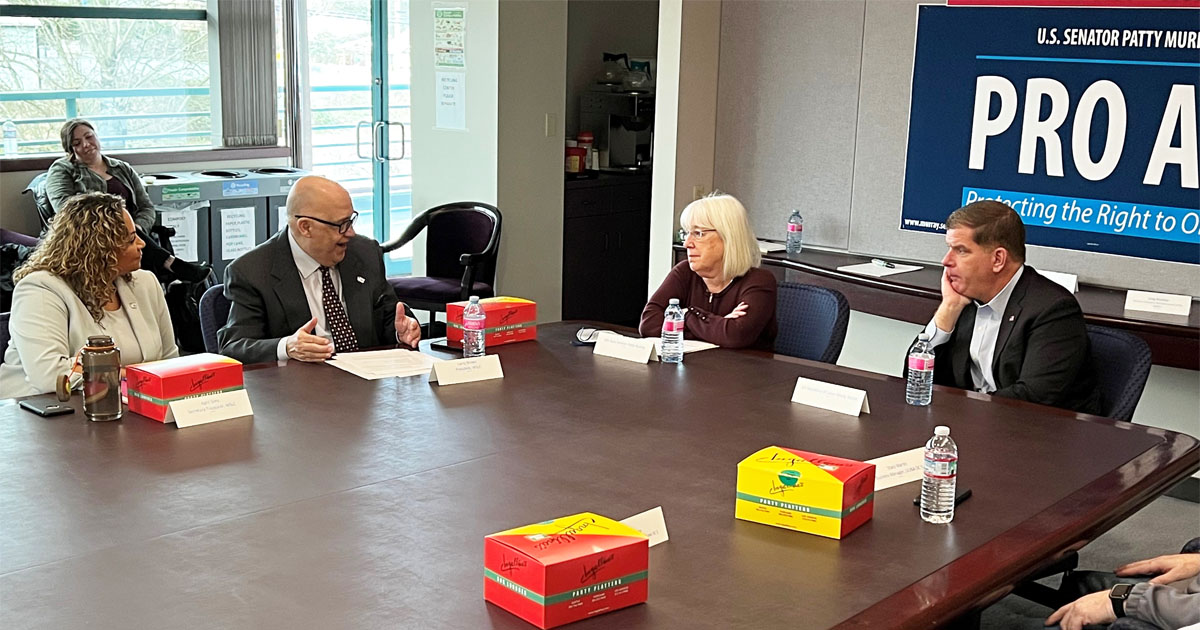NATIONAL
More than ever, Americans need the PRO Act
Walsh, Murray, Jayapal agree: Restoring union rights is a key part of economic recovery
SEATTLE (March 28, 2022) — U.S. Labor Secretary Marty Walsh, joined by Sen. Patty Murray (D-Wash.) and Rep. Pramila Jayapal (D-Wash., 7th), met with union workers and leaders Friday and renewed the call to pass the Protecting the Right to Organize (PRO) Act and restore the freedom to join together in unions. At the Machinists District 751 Hall in Seattle, the three heard from representatives of construction workers, machinists, educators, grocery workers and nurses about their experiences working during the pandemic, and then they met at a private labor roundtable with area union leaders.
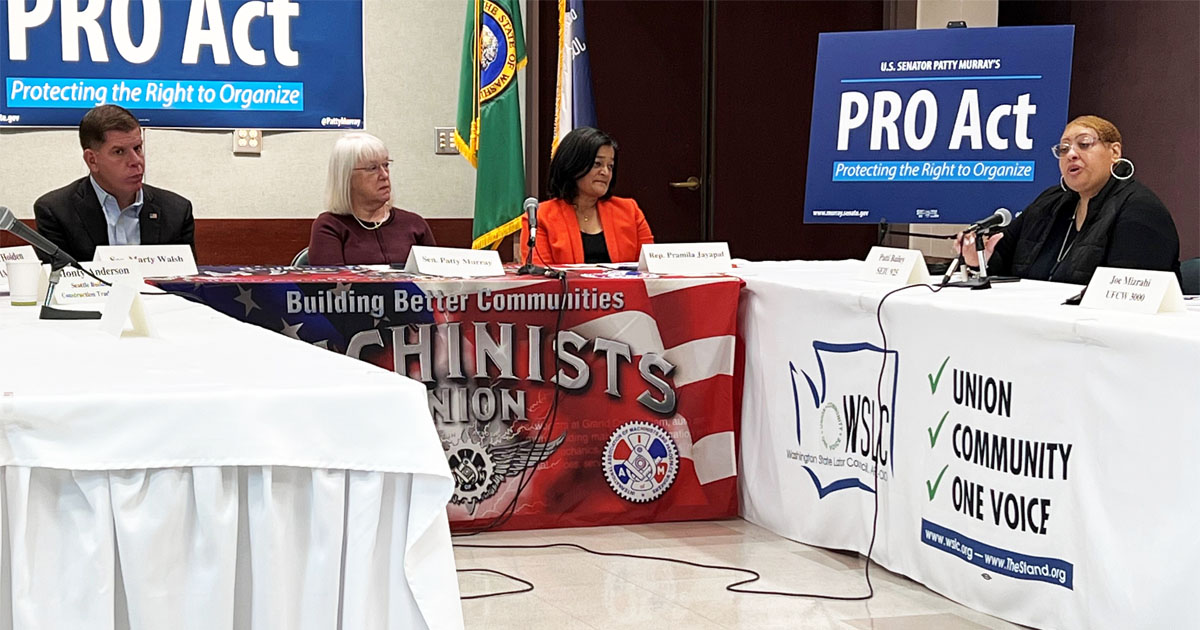
(From left) Secretary Walsh, Senator Murray, Representative Jayapal and Patti Bailey, Early Learning Director of SEIU 925, at the IAM 751 Hall in Seattle on March 25.
Secretary Walsh, a former union member and leader from Boston, described the unprecedented economic recovery from the COVID-19 pandemic with 7.4 million people returning to the workforce, a 3.9 percent unemployment rate, and with the passage of the Infrastructure Investment and Jobs Act, creating new opportunities and new careers. He also noted that that Americans are increasingly aware of the importance of unions and the freedom to negotiate for better wages and working conditions as the key to making sure that those jobs can support their families.
“Some of you have read about what’s going on in the workforce,” Walsh said. “Is it a Great Resignation? Striketober? What is it? At the end of the day, it’s not a lack of workers, it’s workers looking for better opportunities. Workers looking to strengthen their families and their positions where they are. Those workers often are not covered by collective bargaining. And the workers who are covered by collective bargaining, we haven’t heard about resignations, we haven’t heard about people not going back to work, we haven’t heard about people looking for better jobs and better pay. Because it’s part of the labor movement that they fight for better wages.”
Walsh added that “current laws are outdated. They give employers too much power to interfere with workers, organizing elections and contract negotiations.”
Murray said the roadblocks put up by powerful corporations have eroded the freedom to unionize. She again called for passage of the PRO Act, which she sponsored in the Senate and which has passed the U.S. House.
“Unions give workers a powerful voice to demand better,” Murray said, “to demand a fair share of the economic growth they help drive, and demand fairer wages, safer workplaces, better benefits, a secure retirement, and so much more. We need to protect every single worker’s right to form and join a union and bargain collectively—and that’s exactly what the PRO Act will help do.”
The PRO Act passed the House on March 9, 2021, with bipartisan support and President Biden has urged Congress to send it to his desk. But the U.S. Senate is the final obstacle, where all 50 Republicans have opposed the bill and the body’s arcane filibuster rules requires at least 10 of them to support it for its passage.
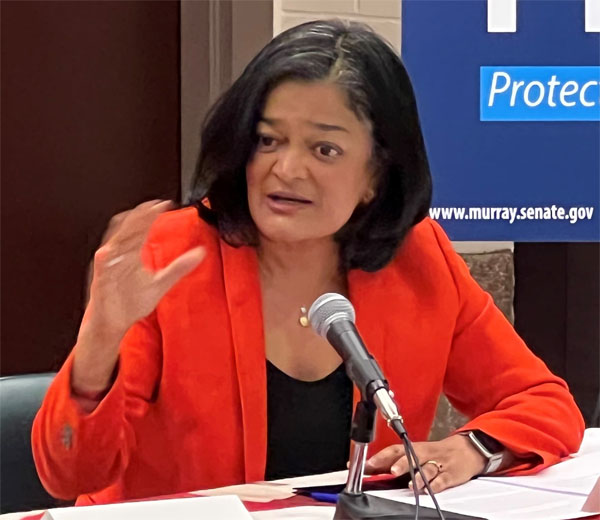 Jayapal noted that House Democrats attempted to include some of the PRO Act’s provisions — specifically, increasing the penalties for employers that violate the existing labor laws when workers try to organize unions — in the Build Back Better package. But that legislation also hit a Republican roadblock in the U.S. Senate.
Jayapal noted that House Democrats attempted to include some of the PRO Act’s provisions — specifically, increasing the penalties for employers that violate the existing labor laws when workers try to organize unions — in the Build Back Better package. But that legislation also hit a Republican roadblock in the U.S. Senate.
“Investing in apprenticeship programs, workforce development programs, those are also really important ways to build our unionized sector,” Jayapal said. “But at the end of the day, we have to have much more aggressive ability for employers to feel some pain if they do take on the (anti-union) practices they’ve taken on.”
The PRO Act would:
● Empower workers to exercise our freedom to organize and bargain.
● Ensure that workers can reach a first contract quickly after a union is recognized.
● End employers’ practice of punishing striking workers by hiring permanent replacements. Speaking up for labor rights is within every worker’s rights—and workers shouldn’t lose our jobs for it.
● Hold corporations accountable by strengthening the National Labor Relations Board and allowing it to penalize employers who retaliate against working people in support of the union or collective bargaining.
● Repeal “right to work” laws — divisive and racist laws created during the Jim Crow era — that lead to lower wages, fewer benefits and more dangerous workplaces.
● Create pathways for workers to form unions, without fear, in newer industries like Big Tech.
Also on Friday, Walsh and Murray met with area labor leaders, including Washington State Labor Council officers Larry Brown and April Sims (pictured above), to discuss various issues. Brown took the opportunity to urge their support of potential buyers of the Intalco aluminum smelter in Ferndale who are attempting to secure a power agreement with the Bonneville Power Administration and reactivate that smelter and hundred of good-paying union jobs.
